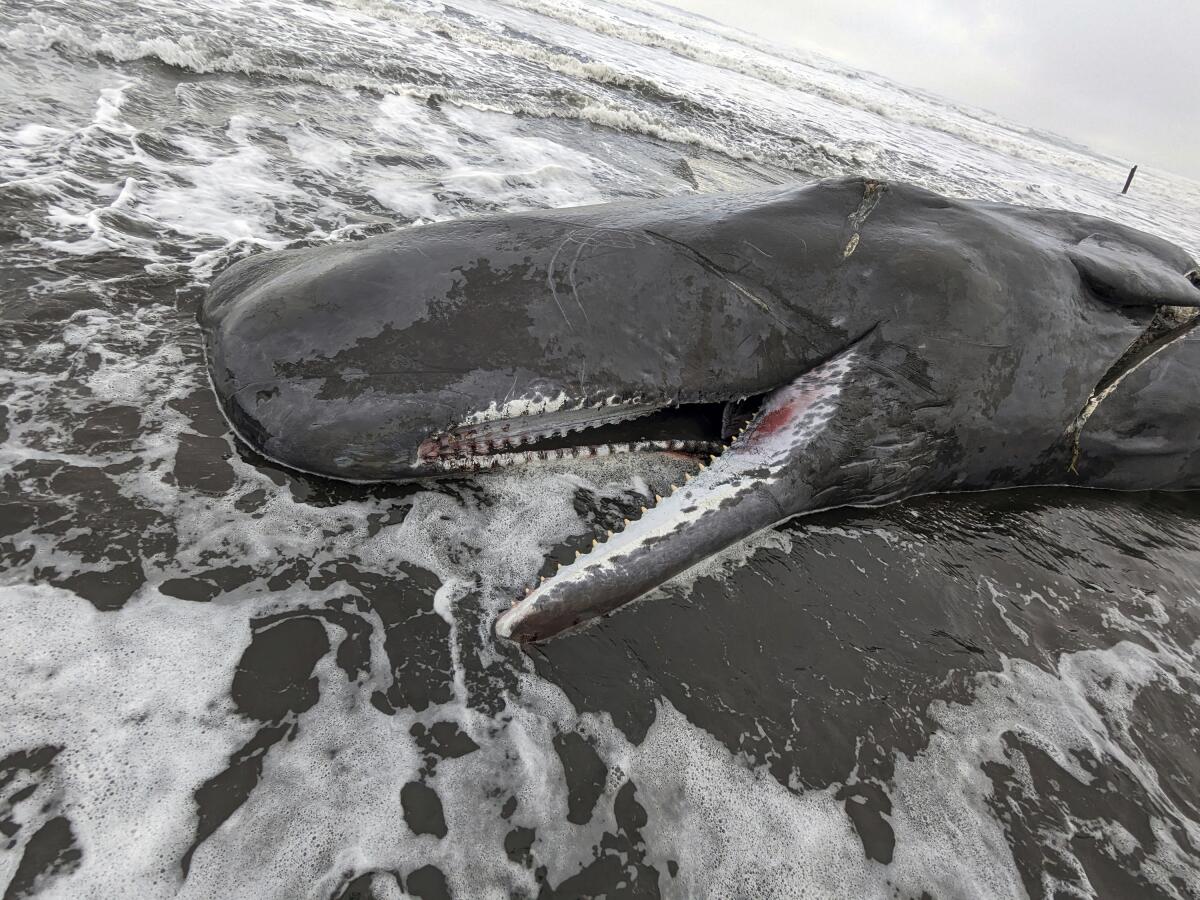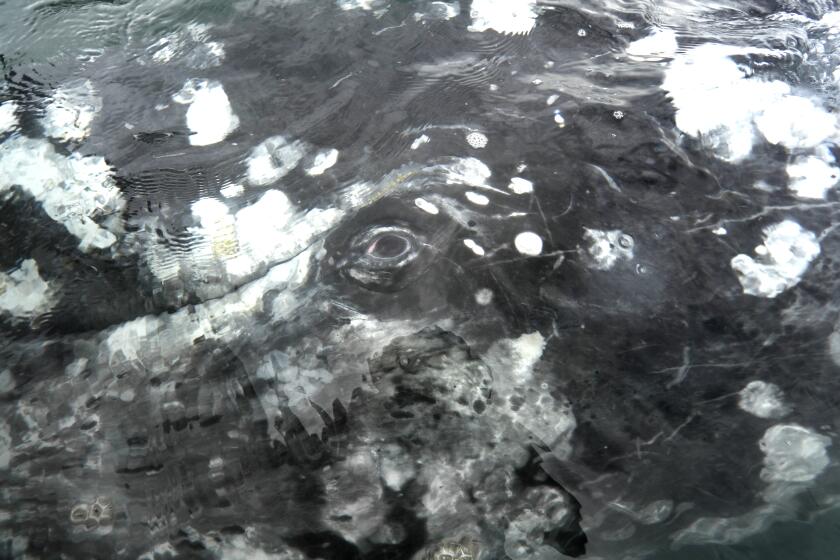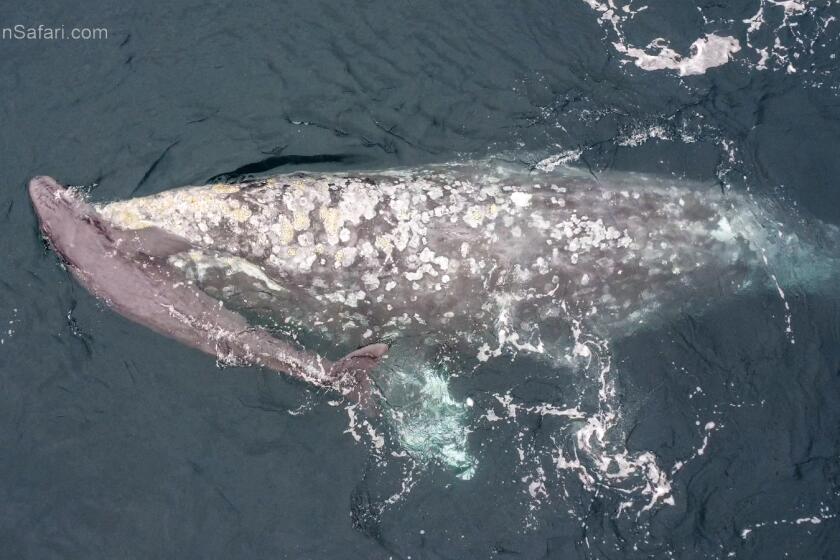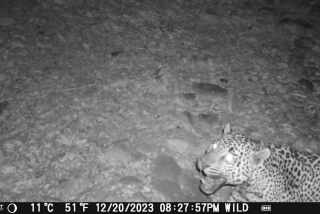Sperm whale that washed up dead in Oregon was hit and killed by a ship

- Share via
PORTLAND, Ore. — A 40-foot sperm whale that washed up dead on Oregon’s northwestern coast was killed after being struck by a ship, federal biologists said Monday.
Biologists with the National Oceanic and Atmospheric Administration’s fisheries agency, NOAA Fisheries, came to that conclusion after examining a large gash in the whale’s side.
“There was hemorrhaging, so that indicates that the animal was alive when it was struck,” said Michael Milstein, a spokesperson for NOAA Fisheries’ West Coast region.
The whale washed ashore Saturday at Fort Stevens State Park in northwestern Oregon.
The biologists performed a necropsy at the site where the whale beached. They cut the whale open, examined its insides and took samples in order to learn about its health and condition. They determined it was a 20-year-old male, Milstein said.
Members of the NOAA’s West Coast Marine Mammals Stranding Network removed the whale’s lower jaw and teeth in order to study them, but also to protect the remains from looters.
The number of gray whale calves born last year was the lowest since 1994, when scientists started recording the data, according to a report Friday.
“Sperm whale teeth and jaws are very prominent and quite lucrative on the black market. We removed the jaws so it did not get liberated by other means,” Milstein said.
Sperm whales, the largest toothed whale, were nearly decimated by the whaling industry in the 19th and 20th centuries. The prized waxy substance found in their heads, spermaceti, was used in oil lamps, lubricants and candles. They are listed as endangered under the Endangered Species Act.
There are hundreds of reports of stranded marine mammals on the West Coast every year, according to the NOAA network, which operates nationwide and is composed of scientific investigators and institutions, wildlife and fisheries agencies, law enforcement and volunteers.
Samples and information collected from stranded animals are often used for scientific purposes to learn more about their populations and their health.
The whale and calf swam near the boats about 45 minutes. Staff said it was the first such event in the 25 years they have been watching whales.
Although not unheard of, it’s unusual for a whale to wash up in northern Oregon during a time of year when most have migrated south for the winter.
The next challenge will be figuring out how to dispose of the carcass. Whales that wash ashore are often buried where they lie on the beach, Milstein said, adding that he wasn’t sure what the plan is for removing the dead sperm whale in this case.
In the meantime, officials have urged curious onlookers to keep their distance from the carcass.
More to Read
Sign up for Essential California
The most important California stories and recommendations in your inbox every morning.
You may occasionally receive promotional content from the Los Angeles Times.












